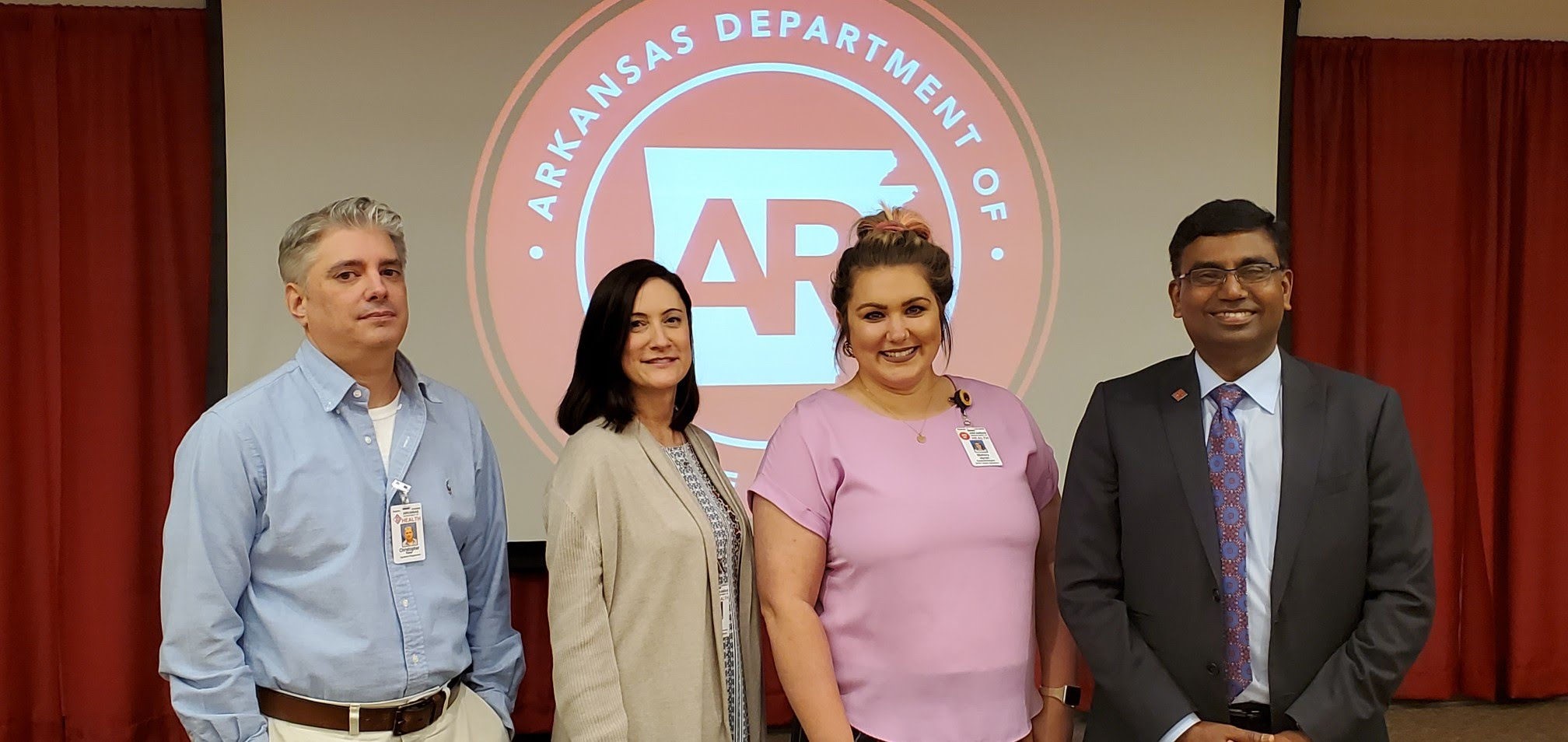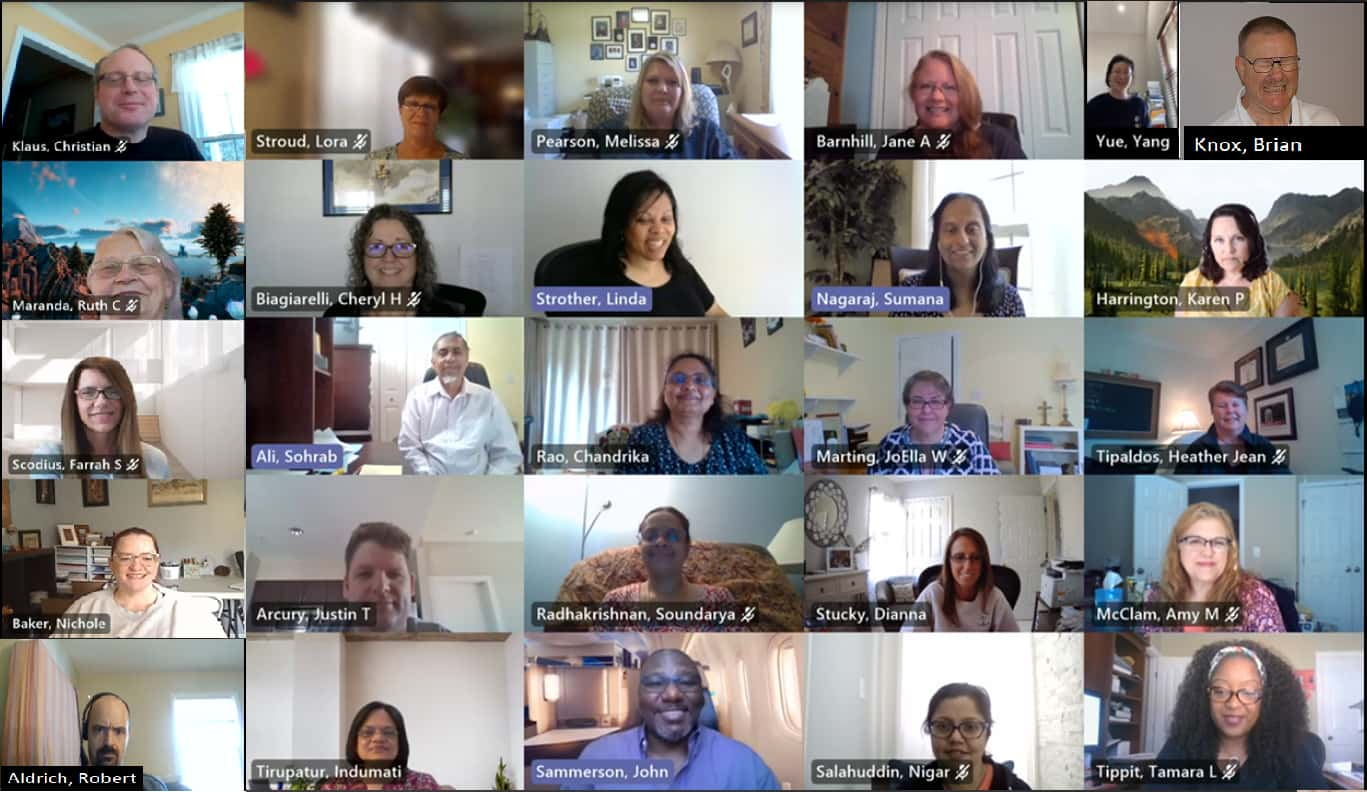State Cancer Registries Study COVID-19 in Patients and Survivors
Posted on byThe early days of the COVID-19 pandemic made it hard for patients with cancer to get the care they needed. Doctor’s offices and treatment centers were closed. Appointments for routine tests, including cancer screening tests, were postponed. As a result, many people did not get cancer screening tests in 2020.
Two state cancer registries were quick to recognize the need to collect high-quality information to understand how COVID-19 was affecting people with cancer. In Arkansas and North Carolina, registries matched data for people with cancer to data for people who tested positive for COVID-19. Their findings will help guide plans to address the needs of people with cancer during and after the pandemic. Both registries are supported by CDC’s National Program of Cancer Registries (NPCR).
Arkansas Finds That Nearly All Cancer Patients Recovered from COVID-19
The first case of COVID-19 was found in Arkansas on March 11, 2020. Three weeks later, a patient with cancer died of the virus. The Arkansas Central Cancer Registry began to study the effect of COVID-19 on patients with cancer in the state right away.
Registry staff linked their data with the state health department’s data on patients who tested positive for COVID-19. Building on a pilot study they began in March 2020, they matched 390,885 patients with cancer diagnosed from 1996 to 2020 with 343,269 patients who tested positive for COVID-19 from March 11, 2020, to March 1, 2021.

The registry found that nearly 11,000 cancer patients and survivors had tested positive for COVID-19. Fortunately, most of them (93%) recovered from their infection. Of the 672 patients who had the virus and died, COVID-19, not cancer, was the primary cause of death for 75% of them.
Registry staff published a paper on the pilot study in the Arkansas Family Physician. They also shared their results at the Arkansas Cancer Summit, an annual event hosted by the Arkansas Cancer Coalition.
“Cancer is the second leading cause of death in our state,” said Bala Simon, MD, MPH, DrPh, acting chief medical officer at the Arkansas Department of Health. “Every year, 16,000 people are diagnosed with cancer, and 6,000 people die of the disease. Our study shows how COVID-19 is affecting patients with cancer.”
State Will Keep Tracking Patients with Cancer and COVID-19
The registry plans to keep tracking how COVID-19 is affecting cancer patients and survivors.
“Fear and anxiety play a major role in patients with a cancer diagnosis,” said Abby Holt, MPH, MLIS, director of the Arkansas Central Cancer Registry. “The added fear of contracting COVID-19 could cause treatment refusals and delays and affect cancer survivorship. That makes it important to understand the short-term and the long-term effects of the pandemic.”
Registry staff are also working to educate doctors about the need to make sure their patients get any cancer screening tests they missed during the pandemic.
“Dealing with COVID-19 may have taken priority right now, but people are still dying of cancer,” said Dr. Simon, who is also an epidemiologist and the chair of the state’s Cancer Registry Advisory Committee. “We have seen a considerable decline in cancer screening during the pandemic. Regular screening tests are important because they can help find cancers early when treatment is likely to work best.”
North Carolina Finds That More Women with Cancer Got COVID-19 Than Men

As the number of COVID-19 cases began to rise in 2020, the North Carolina Central Cancer Registry wanted to find out which groups of cancer patients in the state were more likely to get the virus.
“We knew that people with cancer were being disproportionally affected by the pandemic,” said registry director Chandrika Rao, PhD. “We wanted to dig deeper to understand which people may be at a higher risk for getting ill with COVID-19.”
Registry staff worked with the Communicable Disease Branch of the North Carolina Division of Public Health to do this. They linked data for 1.5 million patients diagnosed with cancer from 1990 to 2019 with data for 142,575 patients who tested positive for COVID-19 from March to September 2020. The results showed that 5,496 patients with cancer had tested positive for COVID-19.
When Dr. Rao and her team looked at the details of these patients, they found that more women with cancer tested positive for COVID-19 than men. This finding is important because more men than women were diagnosed with cancer in North Carolina from 2013 to 2018.
Researchers also looked at other characteristics, like the age, race, and ethnicity of patients and the type of cancer they had. They did not find any other important differences between cancer patients who tested positive for COVID-19 and those who did not.
State Will Continue to Use What It Learned to Study the Effects of the Pandemic
The North Carolina registry was one of the first to look at cancer and COVID-19. The effort was challenging because of the typical 6-month delay between cancer diagnosis and reporting. This meant that cancer data for 2020 were not available. The COVID-19 data were incomplete because the public health community was still working to understand the new virus and its effects.
Registry staff are using what they learned in 2020 to train the people who report cancer data how to record information related to COVID-19, such as test results and treatment delays. They also plan to link the state’s cancer data with COVID-19 data every year for the next few years. And they will look at state death data to find out how many patients with cancer died of COVID-19.
“We will look for more information that helps us understand the effect of the pandemic,” said Dr. Rao. “For example, do short-term delays in screening lead to more advanced-stage cancers at the time of diagnosis? Was there a delay in treatment for patients diagnosed with female breast, prostate, colorectal, and endocrine cancers, the most prevalent cancers among patients with COVID-19? Our findings will help public health leaders and the cancer surveillance community understand the risks and barriers associated with COVID-19 and cancer outcomes.”


Post a Comment